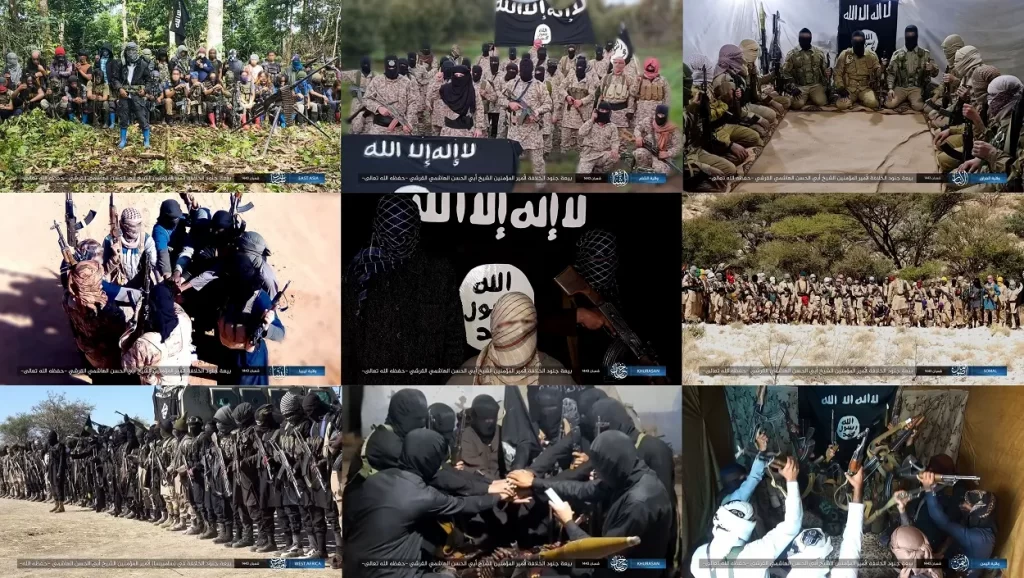
STRATEGIC ASSESSMENT. Allison Fluke-Ekren, a U.S. citizen who pleaded guilty to providing material support and resources to a foreign terrorist organization (ISIS) was sentenced to 20 years in prison. Her case is notable not only because globally, prosecutions for ISIS-related crimes remain relatively low but also because she is said to have held a leadership position in the terrorist group. According to the U.S. Department of Justice (DOJ), Fluke-Ekren pleaded guilty to organizing and leading an all-female military battalion on behalf of ISIS in Syria. The Khatibah Nusaybah, approved by the ISIS leadership in Raqqa in 2016, was established to train women and girls to help ISIS defend its headquarters using weapons, including AK-47 assault rifles, grenades, and suicide belts. According to the DOJ, witnesses also claim that Khatiba Nusaybah provided some members with martial arts and medical training and vehicle-borne improvised explosive device (VBIED) driving courses. Throughout the decade that she spent working with ISIS, she reportedly trained around 100 women, including girls as young as ten years old. Moreover, her own family, including a son and daughter, have accused her of mental, physical, and sexual abuse, including facilitating the marriage and rape of her (then) thirteen year old daughter.
The case of Fluke-Ekren stands out given her leadership role in an otherwise male-dominated group that advanced highly misogynistic views and strict gender roles, with men directed to fight and women to maintain their homes, families, and the future “cubs” of the so-called Caliphate. Still, several experts have cautioned against such stereotyped views, highlighting the multiple (and sometimes overlapping) roles women can play in relation to terrorism, including victim, supporter, perpetrator, and as essential partners in counterterrorism efforts. Several high-profile women – and reportedly female social media profiles – were active in the early years following the emergence of ISIS, propagating narratives about the group as a state-building enterprise and working to recruit new members, especially other females. Women’s voices helped sanitize and legitimize these narratives, notwithstanding the establishment by the group of slave markets for women and girls and an orchestrated genocide against the Yezidi community. The use of sexual violence to decimate opponents and communities in Iraq and Syria and materially profit from the trafficking of humans recalls the use of such tactics in earlier conflicts in Bosnia and Herzegovina, the Democratic Republic of Congo, and Uganda, for example, and is again highlighted in atrocities committed against Ukrainian civilians. While the perpetrators have largely been male, women have often played a facilitating or supporting role, including those associated with the ISIS leadership and fighters.
Globally, prosecutions for ISIS-related crimes remain low, especially so for women. In several states, women do not face investigation or prosecution upon return or repatriation from the conflict zone. One standout is a case in Germany of a woman named “Jalda A.” who was convicted of aiding and abetting genocide, as well as of crimes against humanity and war crimes for the enslavement and abuse of a young Yezidi woman, known as “M” to protect her privacy. The defendant was sentenced to five years and six months in prison; the court found that she facilitated her husband’s physical and sexual abuse of “M,” who was raped in the presence of the defendant while she sat on the balcony; it is reported that “Jalda A.” also herself physically abused “M” on several occasions. Earlier, a German court sentenced a woman known as “Jennifer W.” to ten years for supporting ISIS and a crime against humanity for leaving a 5-year-old Yezidi girl to die of thirst in the scorching heat; both the child and her mother had been abducted by the terrorist group and sold as slaves to work under dire conditions. In Canada, which has recently repatriated two women and children from camps in northeast Syria, the Royal Canadian Mounted Police (RCMP) confirmed that Oumaima Chouay, 27, had been arrested at the airport in Montreal upon her return and charged with terrorism offenses.
The use of sexual violence as a tactic of terrorism has been recognized by the United Nations and its member states, with several United Nations Security Council (UNSC) resolutions condemning the actions and calling for accountability. In 2015, the UN Special Representative on Sexual Violence in Conflict, Zainab Bangura, said that “a common factor that sees the rise of extremist groups is the assault on women’s autonomy and rights. This includes strict enforcement of traditional dress codes and gender segregation as well as reducing women to the status of a breeding grounds for future fighters.” Commenting on the conflict in Syria, she added, “The war has introduced a wave of sexual violence, sexual slavery, forced marriage, forced impregnation, and trauma.” “Rape is being used as a tactic of war and a tactic of terrorism.” Since then, UNSC Resolution 2331 (2016) has also allowed for the listing of individuals associated with Al-Qaida or ISIL/Daesh under the 1267 sanctions regime, where human trafficking and sexual violence have been used to finance or provide material support to terrorist groups. To date however, no one appears to have been sanctioned for this cause and it remains challenging to pursue accountability for the use of sexual violence in conflicts and terrorism. Moreover, lack of accountability can further hinder and complicate sustainable peacebuilding and reintegration efforts post-conflict, as the break down in rule of law can lead to spikes in sexual violence in post-conflict zones and perpetrators and victims, which can at times overlap, may sometimes end up in the same community. Reports of horrific brutality and the use of rape and sexual violence by invading soldiers in Ukraine has highlighted the persistence of this practice and the urgency for international actors to hold perpetrators accountable while providing justice and support to the victims.





